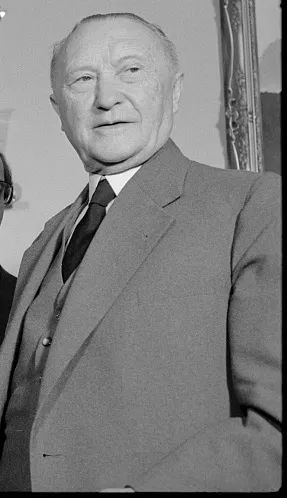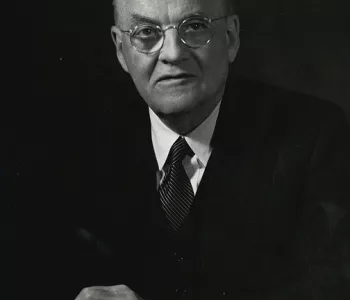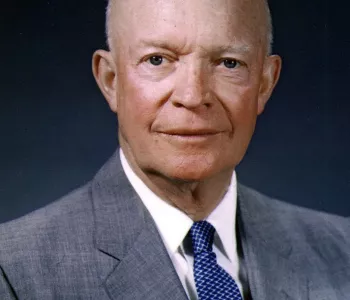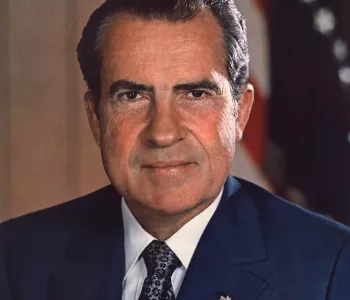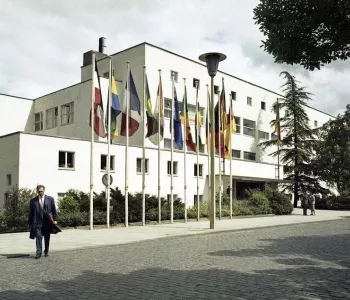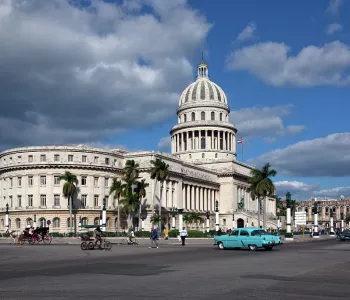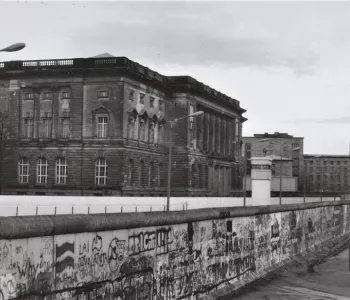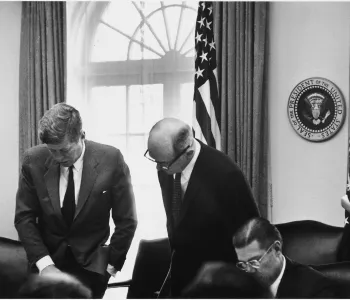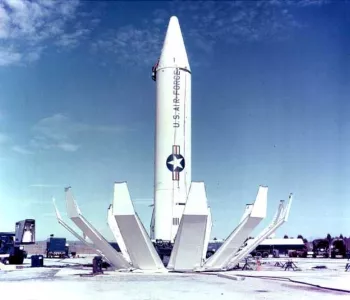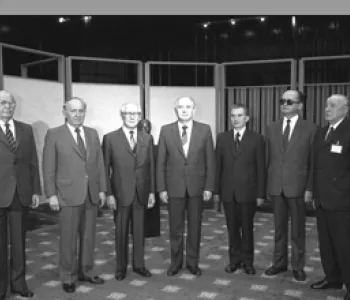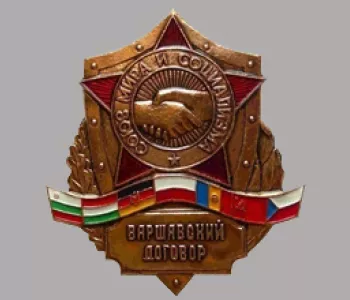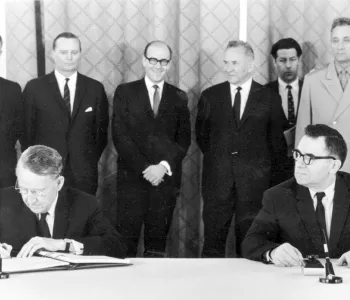Konrad Adenauer was the first Chancellor of the Federal Republic of Germany from 1949-1963, a period which spans most of the preliminary phase of the Cold War. In this period, West Germany was politically separated from East Germany. Adenauer was a co-founder of the Christian Democratic Union, which hoped to embrace Protestants as well as Catholics in a single confessional party.
Adenauer led the rebuilding of West Germany and helped turn the nation into an economic powerhouse. He is also notably credited for directing Germany's reconciliation with France and other allied powers. Under Adenauer, West Germany was allowed to rearm and to join NATO. Adenauer also opened diplomatic relations with the Soviet Union and the rest of the Eastern bloc. In 1955 he managed to secure the release of the last German prisoners of war.
In 1959 he briefly considered to run for the office of the President, then instead chose a candidate (Heinrich Lübke) he believed was weak enough not to disturb his affairs as Chancellor.
In 1962 a scandal erupted when police arrested five Der Spiegel journalists under orders from the cabinet. Adenauer was forced to resign and was succeeded as Chancellor by Ludwig Erhard, although he remained chairman of the CDU until 1966.
